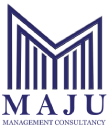Table of Contents
Overview
Saudi Arabia is one of the fastest-growing retail markets in the GCC, supported by Vision 2030 reforms, a youthful population, and rising demand for modern trade. Giants like Carrefour, Lulu, Panda, and Danube have already expanded aggressively, showing that the sector is thriving.
If you are an investor or entrepreneur, this is the right time to explore the Saudi retail market. To succeed, you need to carefully plan your setup process—from licenses to supply chain to compliance.
Step 1: Market Research & Business Planning
Conduct in-depth market studies on:
- Consumer buying trends
- Popular retail formats in your target city
- Opportunities for organic and imported goods
- Pricing competitiveness
Prepare a robust business plan including cost estimates, projected revenue, and a growth strategy. You may also explore insights from our blog on Entrepreneurship License in Saudi Arabia to align your plan with government initiatives.
Step 2: Choosing the Right Location
Location drives retail success Look for:
- High foot traffic areas near residential zones
- Shopping malls or standalone plots with parking
- Regions with favorable demographics and purchasing power
Step 3: Business Structure & Licensing
Popular structures for retail investors in KSA:
- LLC – suitable for small to mid-sized supermarkets
- Joint Stock Company – recommended for large hypermarkets
- Foreign-owned entity – MISA allows 100% foreign ownership
Key licenses required:
- Commercial Registration (CR)
- Municipality License for retail space
- Food & Safety Permits
Step 4: Legal Requirements & Registration
Steps include:
- Reserve your trade name
- Register with MISA (if foreign-owned)
- Obtain approvals from Ministry of Commerce
- VAT registration with Zakat, Tax & Customs Authority
- Municipality permit for retail signage & operations
Step 5: Investment & Funding Options
Supermarkets and hypermarkets need significant funding.
Sources include:
- Saudi commercial banks
- Government SME programs
- Local partnerships and joint ventures
- Private equity
Step 6: Store Design & Infrastructure
Designing customer-friendly infrastructure is essential:
- Segregated aisles for groceries, electronics, clothing, etc.
- Cold storage & logistics facilities
- Digital POS & billing systems
- Safety & hygiene compliance
Step 7: Supply Chain & Inventory Management
Ensure:
- Strong supplier relationships (local + import)
- Customs clearance procedures for imports
- ERP-based inventory tracking
- Stock rotation policies to reduce waste
Step 8: Hiring & Workforce Management
- Recruit staff for cashiering, customer service, stocking, and logistics.
- Comply with Saudization (Nitaqat Program) by hiring a quota of Saudi nationals.
Step 9: Technology Integration
Modern customers expect digitized experiences:
- POS & ERP systems
- Online ordering & app-based deliveries
- Loyalty programs & AI-based demand analysis
Step 10: Marketing & Branding Strategies
Effective branding is vital:
- Digital marketing through Google Ads, SEO, and social media
- Partnerships with apps like HungerStation, Jahez, Mrsool
- Loyalty cards & reward programs
- Seasonal promotions and cultural campaigns
How MajuBiz Can Help
At MajuBiz, we have helped 4,600+ businesses across the GCC, including retail ventures in Saudi Arabia. Our end-to-end support covers:
- Trade name reservation & MISA licensing
- Commercial registration & municipality approvals
- VAT compliance & bookkeeping
- Bank account setup & legal contract drafting
We also specialize in growth-focused consulting, ensuring your supermarket or hypermarket in KSA is set up smoothly and positioned for long-term success.
FAQs
Can foreign investors open a supermarket in Saudi Arabia?
What is the difference between a grocery store, supermarket, and hypermarket?
How long does it take to set up a supermarket in KSA?
Do I need Saudization compliance?
Conclusion
Supermarkets and hypermarkets are among the most profitable ventures in Saudi Arabia’s retail market. With a strong business plan, compliance with legal requirements, and the right supply chain, you can establish a successful venture. By partnering with MajuBiz, you gain a trusted advisor who simplifies the setup process and ensures your project aligns with Saudi Arabia’s Vision 2030 growth agenda.

